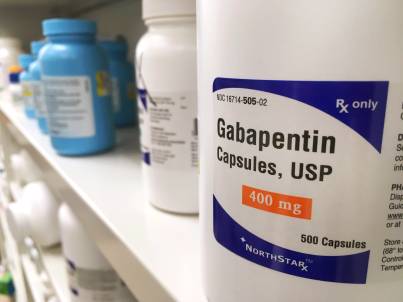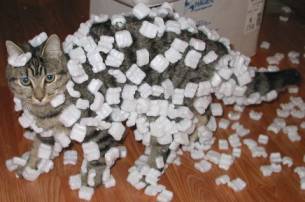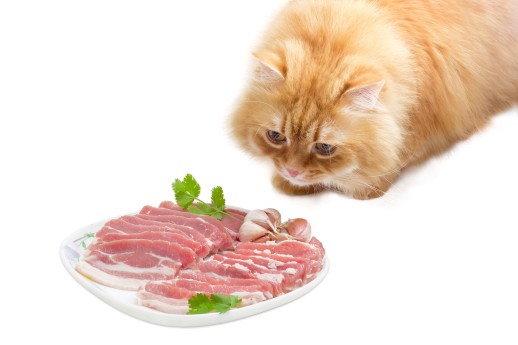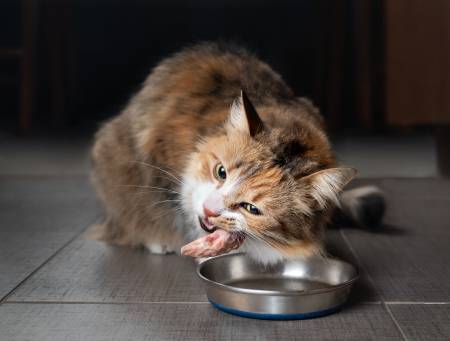Connect with a verified veterinarian in minutes. Licensed vets are available 24/7 to answer your questions. No need to worry about your furry family member.
Humans and cats are fortunate to live at a time when many medications, such as Gabapentin, are available to make us feel better. Gabapentin is a medicine that’s used in both humans and cats, but what happens if a cat eats Gabapentin?
Has your cat eaten Gabapentin? Are you worried that Gabapentin will make your cat sick? If so, you’ve come to the right place. We understand it can be scary when your cat eats something like this.
We’ve gathered information about Gabapentin and whether it can make a cat sick. Let’s get started!
What is Gabapentin?
Gabapentin, also called Neurontin, Aclonium, Equipax, Gantin, Gabarone, Garlise, Neurostil, and Progresse, is an antiseizure medication that is also used to treat chronic pain (nerve pain), anxiety, and more. The medicine works to slow down neurotransmitters that carry information from the body to the brain. When neurotransmitters are slowed down, a cat may feel less anxious or less pain. A cat may also experience fewer seizures on this medicine.
Gabapentin is available for cats and humans, but the doses are quite different. A cat should not have a human dose of Gabapentin because the dose is higher than it is for cats.
While this medication is considered safe when used as directed, what happens if a cat eats Gabapentin?
Gabapentin & Cats
It’s possible for a cat to eat too much Gabapentin and experience an overdose.
Another problem is that the liquid Gabapentin made for humans contains xylitol. Even a small amount of xylitol can make a cat pretty sick. Xylitol is extremely toxic to cats (and dogs).

Review symptoms, medications & behavior to keep your pets healthy with a Vet Online in just minutes.
Ask a Vet Live NowSymptoms of Gabapentin Overdose in Cats
You may notice these symptoms if your cat has eaten Gabapentin:
- Diarrhea
- Vomiting
- Lethargy
- Sedation
- Loss of coordination
- Excessive drooling
If your cat shows any of these or other symptoms, call the vet immediately. This is an emergency.
Let the vet know the dose of the medication your cat has eaten. Also, tell the vet if this was a liquid medication made for humans, as it may contain xylitol.
Treatment of Gabapentin Overdose in Cats
If your cat has eaten Gabapentin within the last 2 hours, the vet may induce vomiting and use activated charcoal.
However, if it’s been some time since your fur baby ate Gabapentin, the vet may need to pump your cat’s stomach and use activated charcoal to remove the medication from your cat’s stomach.
In addition, your feline fur baby may also require an IV for fluids and to administer medications. The vet will also treat other symptoms as they arise.
The prognosis is best for cats who receive prompt medical treatment after eating Gabapentin. In the future, it’s a good idea to keep Gabapentin and all medications out of your cat’s reach. This can be challenging with a cat, so it may be necessary to store all medications in a locked cabinet to keep your cat out. You’ll both be happier for it!
Connect with a verified veterinarian in minutes. Licensed vets are available 24/7 to answer your questions. No need to worry about your furry family member.

Julie
Julie is a graduate of the University of North Carolina, Wilmington, where she studied Animal science. Though contrary to the opinion of her parents she was meant to study pharmacy, but she was in love with animals especially cats. Julie currently works in an animal research institute (NGO) in California and loves spending quality time with her little cat. She has the passion for making research about animals, how they survive, their way of life among others and publishes it. Julie is also happily married with two kids.
Review symptoms, medications & behavior to keep your pets healthy with a Vet Online in just minutes.
Ask a Vet Live Now




